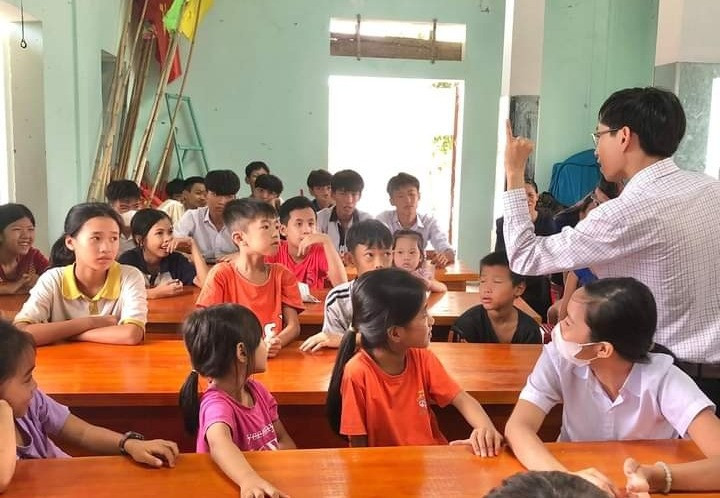
.
Two years ago, Ho Sy Thai, MA in social work, from Hue University of Sciences, received a question from a seventh grader at an event on sexual abuse prevention skills.
“During the break, the girl came to see me. She said her family had parents and two sisters. They had to live in a very small house and four of them sleep on the same bed. Does this mean ‘sexual abuse’, she asked,” Thai recalled.
In reply, Thai advised the girl to talk to parents and ask them to allow the two daughters to sleep on a separate bed.
“I showed her how to talk to parents. Explained that the two generations had different schedules of daily activities. Parents need to go to bed early and get up early to till the field work. The two sisters go to bed later as they have to do home exercises and they get up later,” he said.
However, the question raised by the female student made Thai realize that disseminating skills to prevent sexual abuse and give sex education is necessary and important, especially in rural and remote areas.
Thai, during his training courses and media campaigns in localities, always try to relate stories and include child protection skills into his lessons.
The expert, with 15 years of experience in teaching and giving consultancy on child abuse prevention, realized that children’s levels of understanding about the issue are different in different regions. Urban children and parents have better knowledge than rural and remote children.
Asked what he said during training courses in various areas, Thai said the common purpose is providing children with skills to protect themselves, and recognize risks and abuse behaviors.
“However, I never menace them,” he said. “I want them (children) to understand that they can be victims of sex abuse. However, this must not be a reason for them to be afraid of everybody around them.”
When talking with children, Thai found that children find it difficult to talk with parents and relatives when abuse occurs.
“I usually spend 30 minutes in every meeting to listen to children. However, they only talk about general issues. Sometimes, children call me to ask for advice. They ask if this or that behavior is considered sexual abuse,” he said.
“They call me because they don’t know where they can seek advice,” he said.
Thai believes that it would be better if every locality or school has a division to take complaints and receive information from children.
How to talk to children?
During his lectures, Thai often talks about the five-finger rules. Each finger represents the behavior which could be abusive.
“In addition to identifying behaviors, I also show them the signs of identifying the locations and the persons committing the abuse,” he said.
All places can be where sexual abuse occurs, including crowded places and in the family, not just in deserted places. The subjects committing the behavior can be acquaintances or relatives, not just strangers.
Thai noted that many children still misunderstand the behavior of abuse.
“They think that if people committing this behavior are relatives, the behavior is acceptable. They are wary of strangers, but not acquaintances and relatives. In most cases, the abusers are acquaintances,” he commented.
Therefore, it is necessary to provide knowledge to children so they can identify where the risks may come from.
There are two types of sexual abuse, direct and indirect (via the internet). Asking children to take pictures of themselves not fully clothed and send the pictures is also sexual abuse.
Instructing children to recognize sensitive parts of their bodies and how to safely use the Internet safely is also an important skill to prevent abuse.
Thai went on to stress that it is necessary to equip children with abuse prevention skills not only in classes, training courses and official events, but also during meetings among family members and at extracurricular activities.
Nguyen Thao